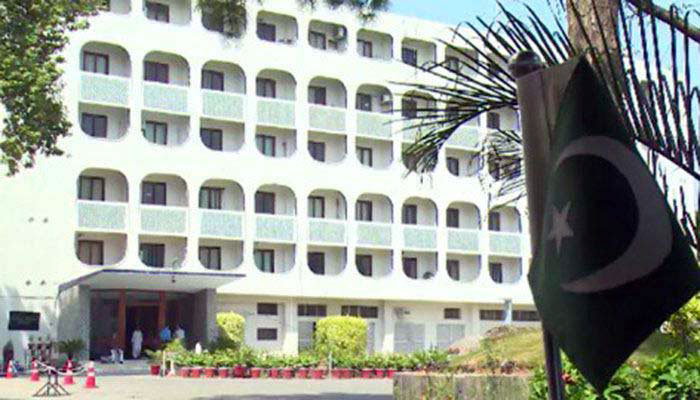Pakistan says Babri Mosque decision has exposed India's so-called secularism
MoFA expresses 'deep concern' over Babri Masjid decision
ISLAMABAD: Expressing deep concern over the Babri Mosque verdict , the Ministry of Foreign Affairs (MoFA) on Saturday stated that it had exposed the veneer of India's so-called secularism.
A press release from the MoFA stated that the decision had exposed how minorities in India were not safe.
READ MORE: Babri Masjid dispute: Indian Supreme Court rules in favour of Hindus
"As the United Nations recently noted that Indian Supreme Court’s response to human rights petitions in the context of Indian Occupied Jammu & Kashmir was slow, this decision points out that when it acts, it is unable to protect the interests of India’s minorities," read the press release.
The MoFA further noted that the rising tide of extremist Hindu ideology was a threat to regional peace and stability.
The press released called on the UN and other international organisations to play their part in restraining India "from its pursuit of an extremist ideology and to ensure equal rights and protection of the minorities in India."
Babri Masjid verdict: Indian SC rules in favour of Hindus
The Indian Supreme Court on Saturday ordered allotment of alternative land to Muslims for setting up of a mosque while deciding in favour of Hindus.
A five-judge bench pronounced its unanimous judgment that was reserved last month on the decades-old Ayodhya case involving the 1992 demolition of the Babri Masjid.
"Muslims should not be deprived of a structure; will get alternative site for masjid", the court ruled.
The ruling said the Indian government will formulate a scheme in three months to set up a board of trustees for construction of temple at the disputed structure.
" Court should preserve balance,"Chief Justice of India Ranjan Gogoi said while reading out the judgment.
The court said Hindus have faith and belief that Lord Ram was born under the dome, adding that faith is a matter of individual belief.
It said there is evidence that Ram Chabutra, Sita Rasoi were worshipped by the Hindus before the British came. The court said evidence in the records shows that Hindus were in the possession of outer court of the disputed land.
"Arguments were made on archaeology report. Archaeological Survey of India's credentials are beyond doubt and its findings can’t be neglected," the Indian Supreme Court said.
The court said in its unanimous decision that titles can’t be decided on faith and belief but on the claims. The judgement stated that historical accounts indicate the belief of Hindus that Ayodhya was the birthplace of Lord Ram.
The Indian SC dismissed plea of Shia Waqf Board on a claim to the Babri Masjid.
-
Security forces gun down 30 terrorists in multiple IBOs in KP: ISPR
-
MQM-P calls for new province in Sindh
-
US report validates Pakistan military edge over India: PM
-
Banned TTP poses serious threat to Pakistan security: UNSC panel
-
CM Afridi clarifies remarks on by-poll after ECP requests army deployment
-
Dubai sees 3.2m Pakistani passengers in 2025 as airport sets new milestone
-
Security forces kill 23 Indian proxy terrorists in KP's Kurram
-
Pakistan to construct island to boost oil exploration: report












